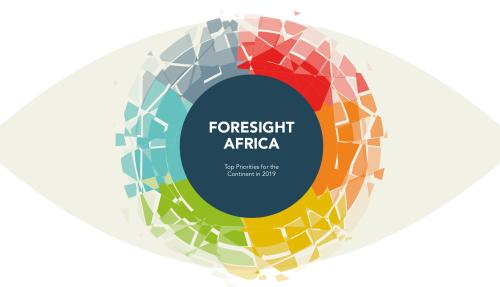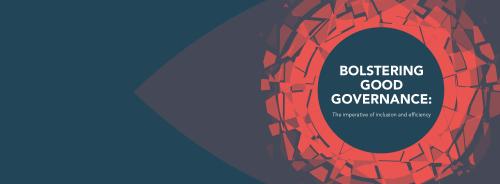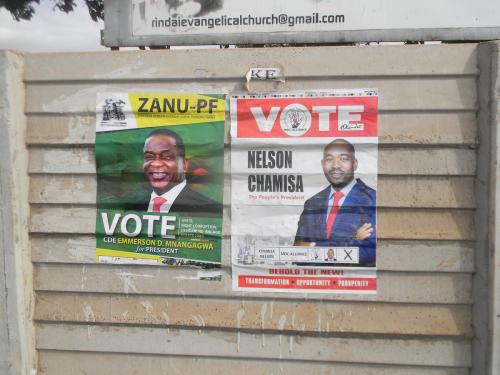Below is a viewpoint from Chapter 1 of the Foresight Africa 2019 report, which explores six overarching themes on the triumphs of the past years as well as strategies to tackle the remaining obstacles for Africa. Read the full chapter on bolstering good governance.
Youth in Africa are isolated and underrepresented in governance across the continent. This is often the case in most parts of the world, but the ratio of under-representation of youth in Africa is alarmingly high. They are left out from key decisionmaking processes. In many cases, the younger generation is more knowledgeable, equipped, and prepared to address the fast-moving issues of today than the establishment leadership.
With 60 percent of its 1.25 billion people under the age of 25 years old, Africa has the youngest population in the world. But this young majority is not being represented in government. This fundamental disconnect between policymakers and youth amplifies problems and causes African society in general to digress and feel dated.
The cries for change from Africa’s youth have mostly been ignored. Policymakers pay lip service to the issue, but rarely do anything to correct it. There is no awareness of youth inclusion in the electoral or administrative process. Sadly, this leaves us with old leadership and institutions that are unable to take any meaningful action to address the issues most relevant to young people. If instead governments focused on inclusion, the youth could have tremendous potential to positively effect change and economic growth.
Senior leadership often views the aspirations of the youth as cultural invasion and imperialist influence.
Youth are the most important human capital of any economy. Not only are they agile, adaptable, and receptive, but the modern youth also understand employment in the millennial age. They are tuned in to opportunities of the gig economy, constantly aware of and ready to seize upon the newest and latest trends.
Unfortunately, senior leadership often views the aspirations of the youth as cultural invasion and imperialist influence, nothing to be taken seriously.
However, there are promising pathways to boost youth empowerment and employment. As I have traveled the continent and worked among young people in over 34 countries, I have seen ways to enhance their social position for better economic and personal well-being.
Above all else, we need to rethink our educational systems in Africa. The majority of our universities teach from curriculums dated to colonization, especially the Francophone countries. We graduate too many students with education in only the classic studies, like history, philosophy, and sociology. While these are no doubt important subjects, our new educational system needs to train young people for the jobs of the 21st century. We need better training in the sciences as well as soft skills that will help students prepare to be lifelong learners.
We need better training in the sciences as well as soft skills that will help students prepare to be lifelong learners.
What is more, the governments of Africa must wake up and address the brain drain issue. We need to not only create highly skilled youth, but also create the economic environment in Africa for them to want to stay and prosper.
Africa’s youth need to be able to take hold of their own destinies in order to provide the continent with a better tomorrow. For the sake of the continent, let us hope that 2019 will be the year to elevate the voice and representation of young people in governance.
The Brookings Institution is committed to quality, independence, and impact.
We are supported by a diverse array of funders. In line with our values and policies, each Brookings publication represents the sole views of its author(s).








Commentary
Raising the voice of young people in governance
March 6, 2019